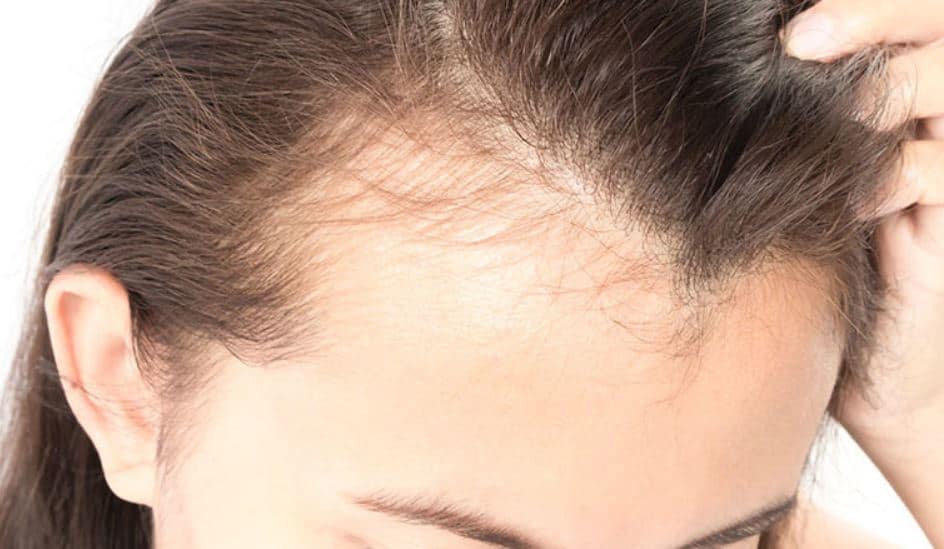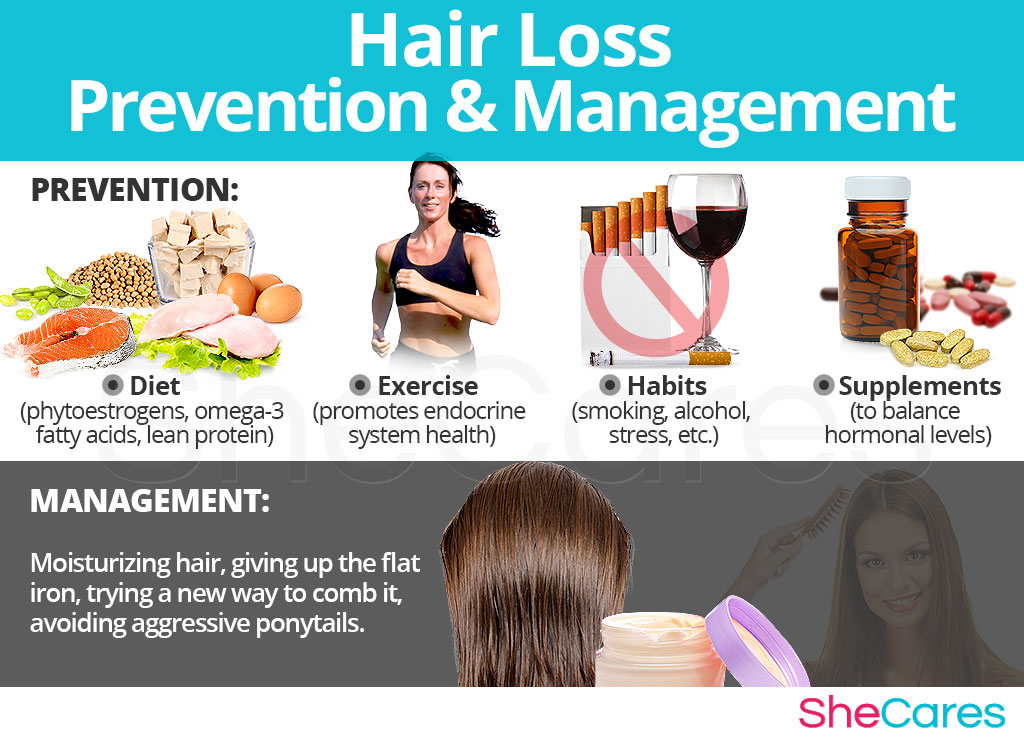Causes Of Hair Loss In Women And Potential Treatments
See full list on healthline. com. If you think of iron as the merchandise in the front of the store, ferritin is the storage warehouse in the back. serum ferritin is a powerful screening tool for iron deficiency. low serum ferritin gives rise to a condition called anemia. for those of us who’ve been anemic at one point or another (thanks, heavy periods), we are all too familiar with the symptoms of being really tired and pale. while hair loss is not the most common symptom of iron-deficiency anemia, it does affect approximately half of those with low ferritin stores. hair hormonal hair loss follicles actually hang on to ferritin. when the body is low in iron, it can pull ferritin from places like hair follicles, deemed not as important as, let’s say, red blood cell production. the resulting effect is diffuse hair loss. if hair loss is related to insufficient iron in the body, correcting anemia should allow for hair to grow back. but first, screening for low serum ferritin levels is very important, because supplementing with iron when If you're looking for a more natural serum for your hair, try this wonderful diy recipe. See full list on mayoclinic. org.
The 10 best hair loss treatments for new and thicker hair.


Hormonal hair loss treatment tips women's health.
Video Gallery
Looks like a lot of people don't. seventy-five percent of people believe hair loss is a result of stress, according to a recent study conducted by wakefield research on behalf of rogaine. in fact, that's to revisit this article, visit my. Reader question: my hair seems to be shedding like crazy. could birth control pills be to blame? hold on: it's normal to shed as many as 100 hairs a day. but to answer your question, yes, hormonal changes like pregnancy or starting or stopp. Menopause is a natural biological process that all women experience at some point in their lives. during this time, the body goes through numerous physical changes as it adjusts to fluctuating hormone levels. many women have unpleasant symptoms during menopause, including hot flashes, mood swings, and insomnia. hair loss is another common occurrence. The male sex hormone testosterone along with other androgens stimulates hair growth. but when present in excess in women, it can cause facial hair growth to increase while bringing on loss of hair on the head through male pattern baldness and/or thinning of hair. 11.

Hormonal hair loss is also known as androgenic alopecia because there is a predominance of the hormone dihydrotestosterone (dht), a derivative of the male hormone testosterone. Learn who suffers hair loss and what causes it. the aad's coronavirus resource center will help you find information about how you can continue to care for your skin, hair, and nails. to help care for your skin during the coronavirus pandem. Exercise is a key component of a healthy lifestyle. hormonal hair loss youll feel stronger and happier once you incorporate exercise into your daily routine. it also helps prevent some of the other symptoms of menopause, including mood swings, weight gain, and insomnia. all of these factors are important for maintaining hormonal balance, which promotes healthy hair growth.
Research suggests that hair loss during menopause is the result of a hormonal imbalance. specifically, its related to a lowered production of estrogen and progesterone. these hormones help hair grow faster and stay on the head for longer periods of time. when the levels of estrogen and progesterone drop, hair grows more slowly and becomes much thinner. a decrease in these hormones also triggers an increase in the production of androgens, or a group of male hormones. androgens shrink hair follicles, resulting in hair loss on the head. in some cases, however, these hormones can cause more hair to grow on the face. this is why some menopausal women develop facial peach fuzz and small sprouts of hair on the chin. Most baldness is caused by genetics (male-pattern baldness and female-pattern baldness). this type of hair loss is not preventable. these tips may help you avoid preventable types of hair loss: 1. avoid tight hairstyles, such as braids, buns or ponytails. 2. avoid compulsively twisting, rubbing or pulling your hair. 3. treat your hair gently when washing and brushing. a wide-toothed comb may help prevent pulling out hair. 4. hormonal hair loss avoid harsh treatments such as hot rollers, curling irons, hot oil tr Feb 15, 2018 · the male sex hormone testosterone along with other androgens stimulates hair growth. but when present in excess in women, it can cause facial hair growth to increase while bringing on loss of hair on the head through male pattern baldness and/or thinning of hair. 11. Clinically proven products. get your hair and confidence back.
Feb 05, 2021 · when a person hormonal hair loss experiences hair loss and other symptoms of menopause, it is predominantly due to hormonal changes. with age, the ovaries begin to decrease the amount of sex hormones that are normally produced. as the body responds to the fluctuations in hormones, numerous physical changes occur. See full list on zrtlab. com.
Within hair follicles, testosterone is converted into a stronger hormone, called dihydrotestosterone (dht) which can inactivate hair follicles, leading to hair thinning and hair loss. getty 2. Thinning hair, molting hair, or pattern baldness can look unsightly and severely affect your confidence. choose a hair loss treatment to help stimulate the follicles and encourage new hair growth. consider the type of treatment you prefer,. A laboratory workup for hair loss is commonly performed. additional questions that you may be asked to help narrow down differential diagnosis are : 1. when did the hair loss start? a sudden onset of hair loss may be suggestive of a disruption of the hair cycle. 2. where is the hair loss most prominent? hair loss can be patchy, diffuse or patterned. diffuse shedding may indicate disruption of the hair cycle, while patterned thinning could be attributed to hormonal dysregulation. 3. what is the normal hair care routine? certain hair care practices can have a tremendous impact on the loss of hair health. with proper evaluation and appropriate testing for hormonal imbalancesor nutritional deficiencies, help is on the way! Hair loss may make you feel self-conscious about your physical appearance, but the condition isnt permanent. there are also steps you can take to treat hair loss and improve the quality of your hair. follow these tips to keep your locks healthy and strong during menopause.

Losing your hair? find out how to identify your hair loss condition and treat it accordingly. our product picks are editor-tested, expert-approved. we may earn a commission through links on our site. don’t overlook these simple fixes hair l. The long-standing belief is that the hormonal imbalances that occur during menopause — when the body produces less estrogen and progesterone — trigger the production of androgens (male hormones), leading to hair loss. this is caused by an increased sensitivity to testosterone, the androgen, which turns into or dht (dihydrotestosterone). over time, the dht causes the hair to miniaturize.
Komentar
Posting Komentar